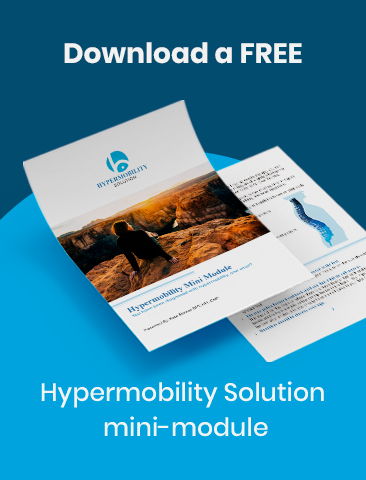With Coronavirus and all the quarantine stuff going on, so many people are stuck at home. Today, I want to talk about the impact of Coronavirus on chronic pain, including some of the ways it affects you and what you can do about it, even if you’re stuck at home.
Understanding The Impact of Coronavirus on Chronic Pain
It spreads like the flu
COVID-19 is very similar to the flu, due to the fact it’s spread through physical contact and via the respiratory system. What that means is you want to make sure you wash your hands, all the way up to your wrists. You want to do things like avoid touching your face, your nose, and your mouth when your hands aren’t clean. Make sure you stay home if you are sick or have symptoms. And you also want to stay away from other people who might be sick or symptomatic.
Keep your environment clean
Make sure you’re cleaning things that you’re touching on a regular basis. Things like remotes, your tablet, your laptop, door handle – anything that you don’t typically think of to clean. These are the things that are going to end up spreading germs because they are in the closest contact with you.
Coronavirus stress can make chronic pain worse
Now, while there’s been a lot of talk about COVID-19, there actually hasn’t been a lot of talk about the stress and uncertainty about Coronavirus and the impact that stress may have on your health and your chronic pain symptoms.
One of the things I’ve been talking about in my office a lot this week (yes, I’m still working), is that this stress is going to aggravate symptoms. It’s a question most people don’t even think to ask: how does stress affect your pain?
Most hypermobility clients have pain issues. This issue about Coronavirus stress affects all my clients, but especially those with pain issues. Some have been coming in with new pain problems, and they don’t know where it came from. Others have had their current issues aggravated, or are having more trouble with movement and exercise. That’s why understanding how this situation affects you is so important. It allows you to handle it better and do things that will make it easier on you, even from home.
The Physical Effects of Stressful Situations
Stress has a physical component
So, the first thing to understand is that stressful situations like a pandemic don’t just have a psychological effect, they also have a physical one. John Koch did some great research about this after the financial crash in 2008.
One of the things he found while looking at the physical effects of stressful environments is that your environment has a larger effect on your physiology than you realize. You might think you’re doing fine. But your blood chemistry says otherwise. My clients and lots of people in my field have been affected by this.
Stress is like gasoline for chronic pain
Another aspect of health-related situations is stress tends to be a lot like gasoline. It doesn’t start a fire. It doesn’t create a spark, but it will blow up something that’s already ongoing. So when you have a back injury or neck injury, or just problem pain, stress tends to make it worse across the board.
We see this in neurological issues as well. Stressful environments tend to make the symptoms of people with autoimmune disorders worse.
We know there is a physical response. It’s not just in your head. It’s kind of like flipping a switch because you can’t just think yourself better. How you think does affect you, but it’s not as easy as making your pain go away just by telling yourself it’s stress. It doesn’t quite work that way.
Fight, flight, or freeze?
Stress triggers the brain-stem response of fight or flight. Or more accurately, fight, flight, or freeze. The words fight and flight indicate actions. You’re supposed to do something with them. Freeze is more like a kind of overload. When there’s so much going on, you kind of shut down and you can no longer make decisions and you can’t make choices. But with fight or flight, your body’s gearing up to do something and be active.
Now, in our current situation, if you’re watching the news and it’s sending you into a fight or flight response, it’s very worrisome for you. You’re sitting on your couch. You’re not doing anything. You’re not going to do anything, and you’re not running away. So those stress chemicals don’t do good things when they’re just sitting in your body and in your system. They tend to cause you more trouble and they start working on your system instead of allowing you to mobilize and do something different to change your situation.
So understanding that it’s a physical problem and that it does have an effect on your symptoms allows you to put things into place to control harmful stress better.
Learn to Effectively Manage Stress & Chronic Pain
Move your body to control stress
Number one is to move your body. I know you don’t really want to. I understand, and I’m sorry. But because stress manifests as actual chemicals designed for you to get up and do something. So giving them something to do is the best thing you can choose.
Now, if you’re quarantined and you’re stuck at home, you already have a reduced area to move around in. In Western Montana, our gyms are all closed. Yours probably are too. So you can’t go to the gym to work out. You’ll have to make the best of the situation you have.
But you can still get up and move. And it doesn’t really matter what you choose to do. There are so many choices. You can walk around your house, do standing marching, do exercises, etc. It doesn’t matter as long as you get yourself moving. Find a YouTube video. There are literally thousands of them online. There’s everything from Sit and Be Fit to an Insanity Workout where you can work out with no equipment. Whatever you choose, find your level and make it a regular part of your routine. Because if you can get rid of those chemicals and get them processed, not only will you feel better mentally, you’ll feel better physically. Moving toxic stress chemicals out of your body is important for improving the impact of Coronavirus on chronic pain.
Use stress management techniques
Also consider stress management techniques. These are the things that people most typically associate with managing stress. So, things like meditation, deep breathing, mindfulness, or whatever works for you to help calm your system and reduce the level of your stress. It’s kind of like turning down the volume. It doesn’t make it all go away. But if you can at least keep the volume down, that makes things a little bit easier.
Avoid information overload
Now, also watch out for information overload. I’m seeing this a lot with Coronavirus in the US. I’m also seeing this with politics. If you’re somebody who is triggered, please change and limit how much you are accessing the news and social media. Shut your notifications off. Only check your email one to two times a day. I’m not saying don’t ever access it. I’m not saying you can’t know what’s going on. But if you check things twice a day at noon and again at 5:00, or whatever times work for you, you’re still going to know everything that’s going on. The biggest difference is that your body can then recover back to a baseline rather than constantly being aggravated with all this new information. And the uncertainty and emotion that goes along with it.
Make your stress management plan in the morning
My next suggestion is to plan your management strategy and make sure to plan something for the morning. After we sleep, (and hopefully you sleep fairly well), you have the best chance of being able to set an effective stress management plan for the day. For example, decide when you’re going to check your social media. Decide what exercise you’re going to do and when you’re going to do it. Really try to make a plan in the morning, and do the most important thing(s) on your plan before the afternoon if you can. That’s when you’ll have the most reserve. By the time afternoon comes, it gets really hard to be motivated to do what you need to do. So get it done first thing in the morning. There’s a saying, “do first things first.” If it’s important to you, you should do it first.
And then the last thing is to just note and accept what’s going on when you’re in a stressful situation. We can’t control what’s going to be closed, what’s going to be open. We don’t know how long this is all going to last. And so you focus on the things that you can control, and that helps you manage better.
And it also helps to know that this situation with Coronavirus is temporary. Just like everything else, this will end and things will move forward, and things will be better. With pain issues, it helps to shift your perspective out of, “Oh gosh, you know what’s happening to me? My body is falling apart! I herniated that disc!”, to something more like having a sunburn. It hurts. You don’t like it. But you know it’s going to get better with time. The impact of Coronavirus on your chronic pain is temporary.
Also, use standard pain relief methods right away when your pain symptoms start to increase. That’s things like over-the-counter medication, topicals, heat, ice, changing position, etc. These are really effective when your symptoms are about to get bad and you’re in full-blown misery. Hurting is unpleasant, but when things are just starting to aggravate, that’s the time to use all things that you have at your disposal.
So hang in there. Be kind to yourself. Be kind to others as much as you can. Try and get up and move and know that if your symptoms are worse right now, or if you’ve picked up a couple of new symptoms this week, they will get better as this COVID-19 situation gets better and we start to find our new normal.

About Kate

Kate Skinner is a Doctor in Physical Therapy, co-founder of Great Divide Physical Therapy, and creator of Hypermobility Solution.
Recent Posts


